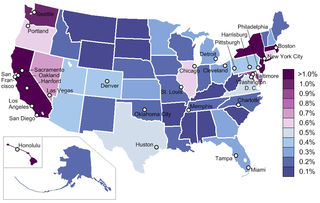Intelligence
How to Raise Smart Kids Chinese-Style
Secrets of Chinese child-rearing to raise children's IQs
Posted January 13, 2011 Reviewed by Davia Sills

There is a long and unfortunate debate over why some groups—children of Eastern European Jews and of East Asians—score high on IQ tests and attain academic success, while other groups—children of African Americans and Latin Americans—do less well than average.
A lot of Americans, including a lot of psychologists, unfortunately, formulate the issue the following way: Smarter people do better in school; therefore, Asians and Jews must be inherently smarter (and African Americans and Latinos must be inherently less smart). Along with this view also comes the belief that intelligence, as a form of innate potential, is something that cannot be altered.
I have spent a lot of time looking at the concept of race cross-culturally—e.g., in my recently published book The Concept of Race and Psychotherapy—and at the race-IQ debate—e.g., in my edited volume Race and Intelligence: Separating Science from Myth.
As I have indicated in my Psychology Today posts, race is a cultural concept for classifying people based on what they look like or on their ancestry. It is a concept that changes from one culture to another, rather than a biological concept. The human species has no biological races.
There is an alternative way of looking at intelligence. Formal education makes people smarter. People who can solve partial differential equations are smarter than people who cannot divide fractions. Formal education teaches people how to divide fractions, and then algebra, and then calculus—and eventually, they are able to solve partial differential equations. At that point, they are smarter than when they started out.
Whatever strengths and weaknesses people begin with, the way to get smarter is to take advantage of formal education, and the way to do that is to work hard. When a child doesn't learn something, instead of thinking, "It's too bad he isn't smarter," we should be thinking, "He'll just have to work harder." Instead of the question "Why are some groups smarter than others?" we should be asking, "How do groups that are really good at getting their kids to work hard at school do it?"
Instead of saying, "I wish my kids had Asian or Jewish genes for a high IQ," we should be asking, "What can I learn from Asian or Jewish parents (not any parents, just those whose children excel in school) about child-rearing?" and "How can I get my children to make friends with and do their homework with high-achieving kids?"
In a recent Wall Street Journal article, "Why Chinese Mothers Are Superior," Amy Chua gives the Chinese recipe for success. Ms. Chua is a professor at Yale Law School, so apparently, the strategy worked with her, and the article contains a picture of her daughter playing piano at Carnegie Hall, so she seems to have implemented it effectively.
Non-Asian Americans are not going to like the article. They may even view the kids as virtual prisoners in a labor camp—though they should be aware that the corresponding Chinese view is that Americans don't love their children enough to put in the kind of effort necessary for them to succeed in life.
Ms. Chua writes that "studies indicate that compared to Western parents, Chinese parents spend approximately 10 times as long every day drilling academic activities with their children. By contrast, Western kids are more likely to participate in sports teams." And she provides the following list of things her daughters are never allowed to do:
- Attend a sleepover
- Have a playdate
- Be in a school play
- Complain about not being in a school play
- Watch TV or play computer games
- Choose their own extracurricular activities
- Get any grade less than an A
- Not be the number-one student in every subject, except gym and drama
- Play any instrument other than the piano or violin
- Not play the piano or violin
Many Americans may not want to put in the time and effort or develop the kinds of relationships with their children that Ms. Chua recommends. Let us at least hope that those who are envious of Chinese kids' high IQs and academic achievement will give up the fantasy of special Asian genes for intelligence.




